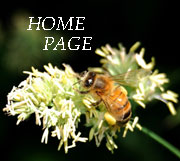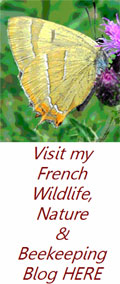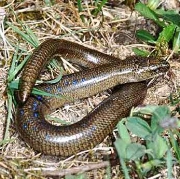
Orvet Anguis fragilis Slow worm
(Syn. Française: Serpent de verre)
This strange lizard which resembles a snake due to having no legs, has a length of up to 50 cm. Small indistinct head, somewhat conical with a rounded nose, small eyes with eye lids. The body is covered with smooth shiny scales and the colouration varies from silver grey to a coppery bronze, males sometimes have blue spots on the sides of their bodies and have a pale belly. Females normally have a black or dark line which runs the length of the spine, and a dark belly.
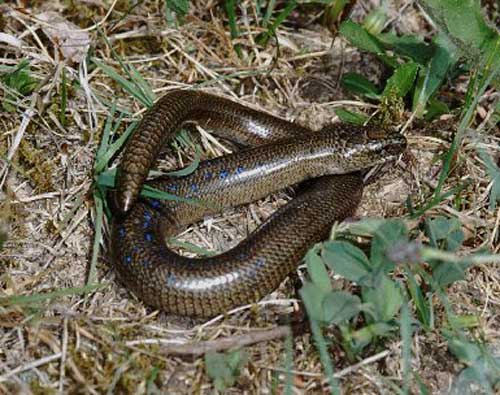
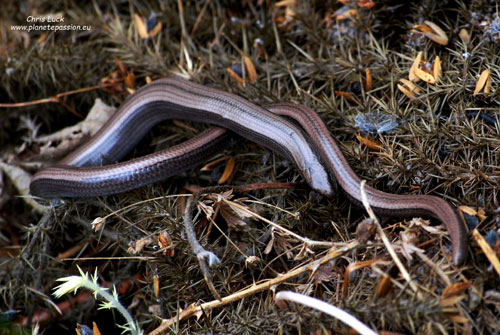
They can be found in all regions of France. Although they generally prefer moist habitats with surrounding dense vegetation, ditches, pasture, gardens, leaf heaps, etc, they can still be seen where conditions are dry if there is sufficient shade. They are a rather defenseless creature, tending to remain well covered under rocks or leaves, they are not a very good climber, but have the ability to flee rapidly when threatened and “shed” the end of their tail if necessary although, this never grows again properly.
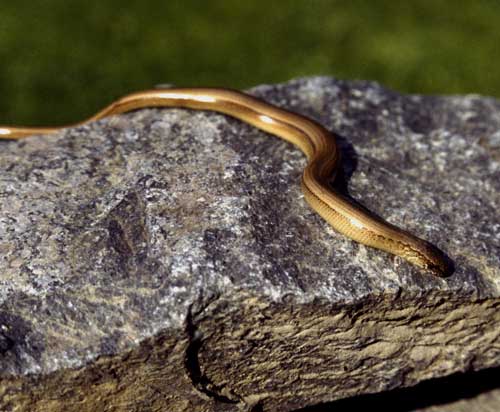
Seeking food normally takes place early, around dawn, and then later in the day as night approaches, when they seek out slugs, spiders, beetles, insects and their larvae. Hibernation takes place from October until March, depending on local conditions in a hole which they create or equally one which already exists like an old rodent tunnel.
Reproduction takes place in Spring shortly after coming out of hibernation, violent fights can occur between males when there are several present, and serious injuries can be inflicted with their tiny teeth. The young, which number between 5 and 20, are generally born during the hours of darkness after a gestation period of 3 months and measure around 5 cm.
Although widespread and very common in France (and most of Europe), overall populations have declined. Fully protected specie in France.
